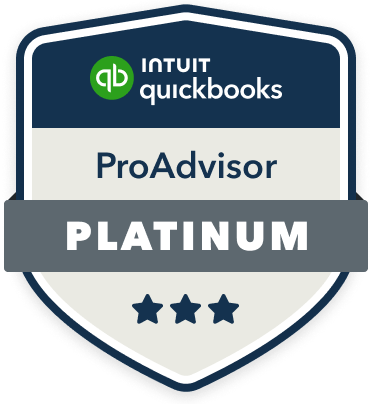Lessons Learned by a CFO for Small Businesses
Running a small business is no small feat. From managing cash flow to navigating regulations, small business owners face a myriad of challenges. As a Chief Financial Officer (CFO) with years of experience in guiding small businesses, I’ve encountered many pitfalls and triumphs along the way. Here are some invaluable lessons I’ve learned that can help you steer your small business towards success.
SYSTEMS AND SOFTWARE


1. Cash Flow is King
Lesson: Prioritize cash flow management.
Small businesses often operate on tight margins, making cash flow management critical. Even profitable businesses can fail if they run out of cash. Regularly monitor your cash flow statements and create cash flow forecasts. Identify periods of potential shortfall and plan accordingly. Implement strategies such as negotiating better payment terms with suppliers and encouraging faster payments from customers.
2. Know Your Numbers
Lesson: Have a solid grasp of your financial metrics.
Understanding key financial metrics is crucial for making informed decisions. Metrics like gross profit margin, net profit margin, current ratio and quick ratio provide insights into the financial health of your business. Use these metrics to identify trends, spot potential issues early and make data-driven decisions.
3. Build a Contingency Fund
Lesson: Always have a financial buffer.
Unexpected expenses can arise at any time, from equipment failures to sudden drops in sales. Having a contingency fund can be the difference between weathering a storm and facing financial ruin. Aim to set aside at least three to six months’ worth of operating expenses. This buffer can help you navigate through tough times without resorting to high-interest loans or credit.
4. Invest in Technology
Lesson: Leverage technology to streamline operations.
Investing in technology can enhance efficiency, reduce errors and save time. Accounting software, for instance, can automate invoicing, expense tracking and payroll processing. Customer Relationship Management (CRM) systems can help you manage customer interactions more effectively. Don’t view technology as an expense; see it as an investment that can yield substantial returns.
5. Regular Financial Review
Lesson: Conduct regular financial reviews.
Periodic financial reviews are essential for staying on top of your business’s financial health. Review your financial statements—balance sheet, income statement and cash flow statement—monthly or quarterly. These reviews can help you identify discrepancies, assess performance against budgets and make necessary adjustments promptly.
6. Manage Debt Wisely
Lesson: Be prudent with borrowing.
While debt can be a useful tool for growth, it needs to be managed wisely. Avoid taking on more debt than your business can comfortably repay. Consider the interest rates and terms of any loans or credit lines. Aim to pay down high-interest debt as quickly as possible and only borrow what you truly need.
7. Build Strong Relationships with Lenders
Lesson: Cultivate good relationships with financial institutions.
Establishing a good relationship with your bank or financial institution can be beneficial. Keep them informed about your business’s performance and plans. A transparent and trustworthy relationship can make it easier to negotiate better terms, secure additional funding when needed and receive support during challenging times.
8. Understand Your Market
Lesson: Stay informed about market conditions and trends.
A thorough understanding of your market can help you anticipate changes and adapt your strategies accordingly. Keep an eye on market trends, customer preferences and competitor actions. Use this information to refine your product offerings, marketing strategies and pricing models.
9. Invest in Your Team
Lesson: Your team is your greatest asset.
Investing in your employees can pay significant dividends. Provide regular training and development opportunities to enhance their skills. Foster a positive work environment that encourages collaboration and innovation. A motivated and skilled team can drive your business towards greater heights.
10. Plan for the Long Term
Lesson: Don’t just focus on immediate gains; plan for sustainable growth.
While it’s important to meet short-term objectives, having a long-term vision is crucial for sustainable growth. Develop a strategic plan that outlines your business’s goals for the next 3-5 years. This plan should include market analysis, financial projections and growth strategies. Regularly revisit and adjust your plan as needed.
Conclusion
Being a CFO for a small business comes with unique challenges and rewards. By prioritizing cash flow, understanding your financial metrics, building a contingency fund, leveraging technology and maintaining a long-term vision, you can navigate the complexities of small business management. Remember, the key to success lies in continual learning and adaptation. With these lessons in mind, you’ll be better equipped to lead your small business to success.












